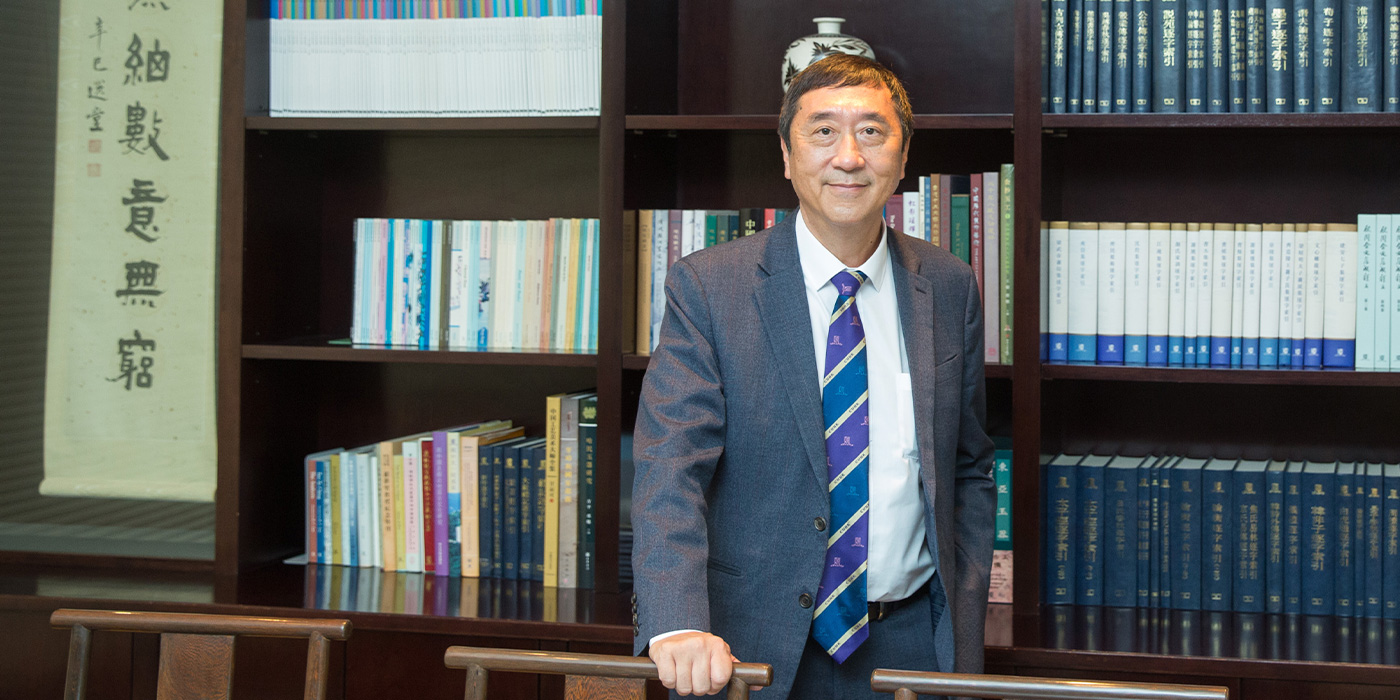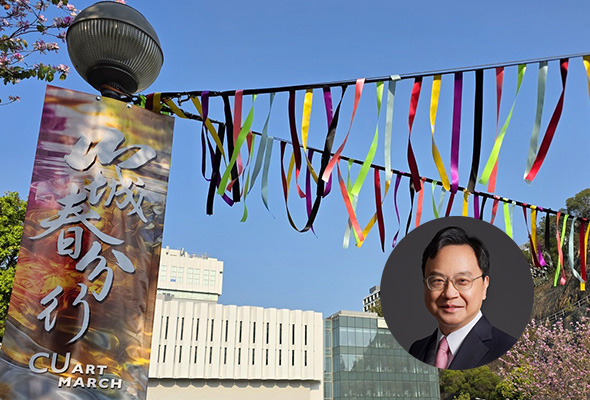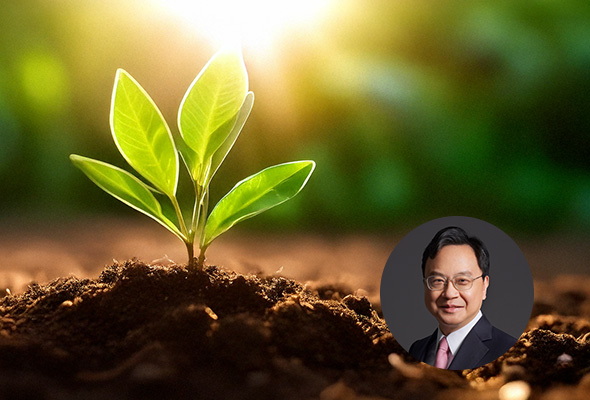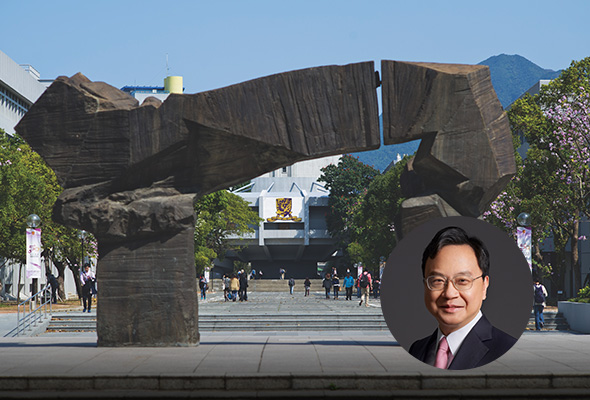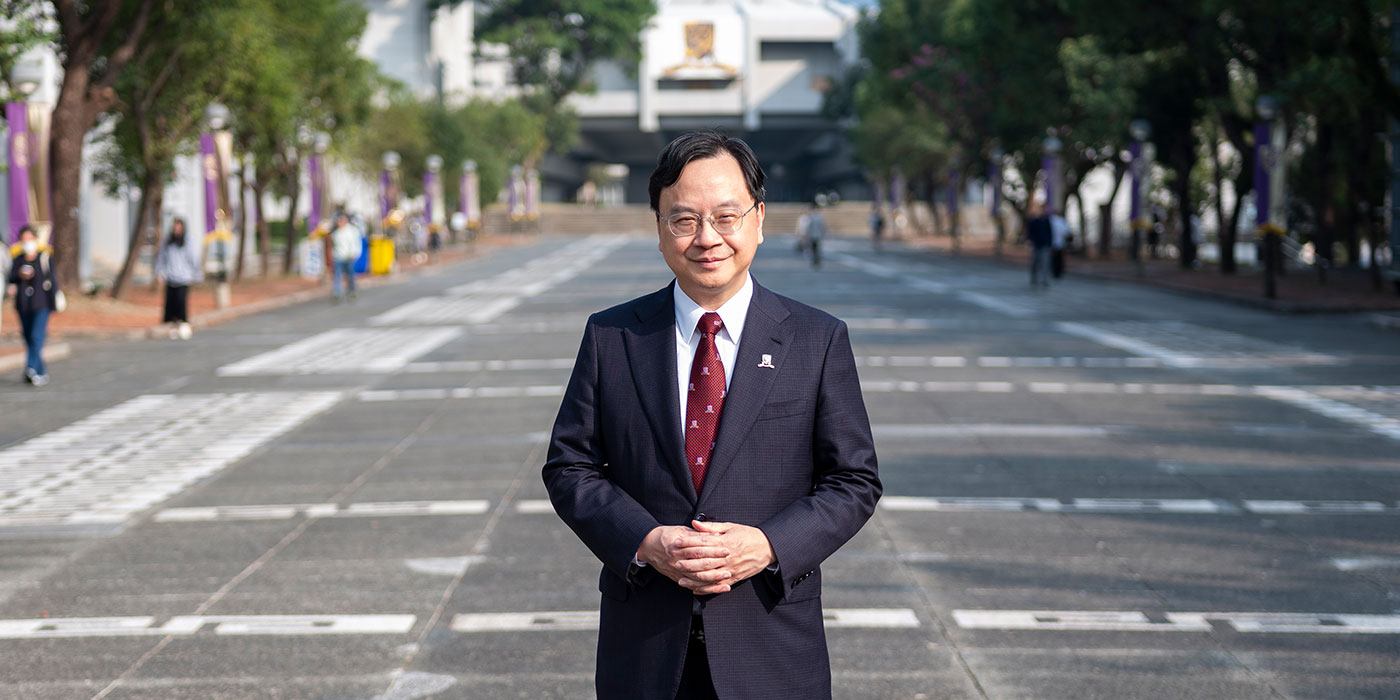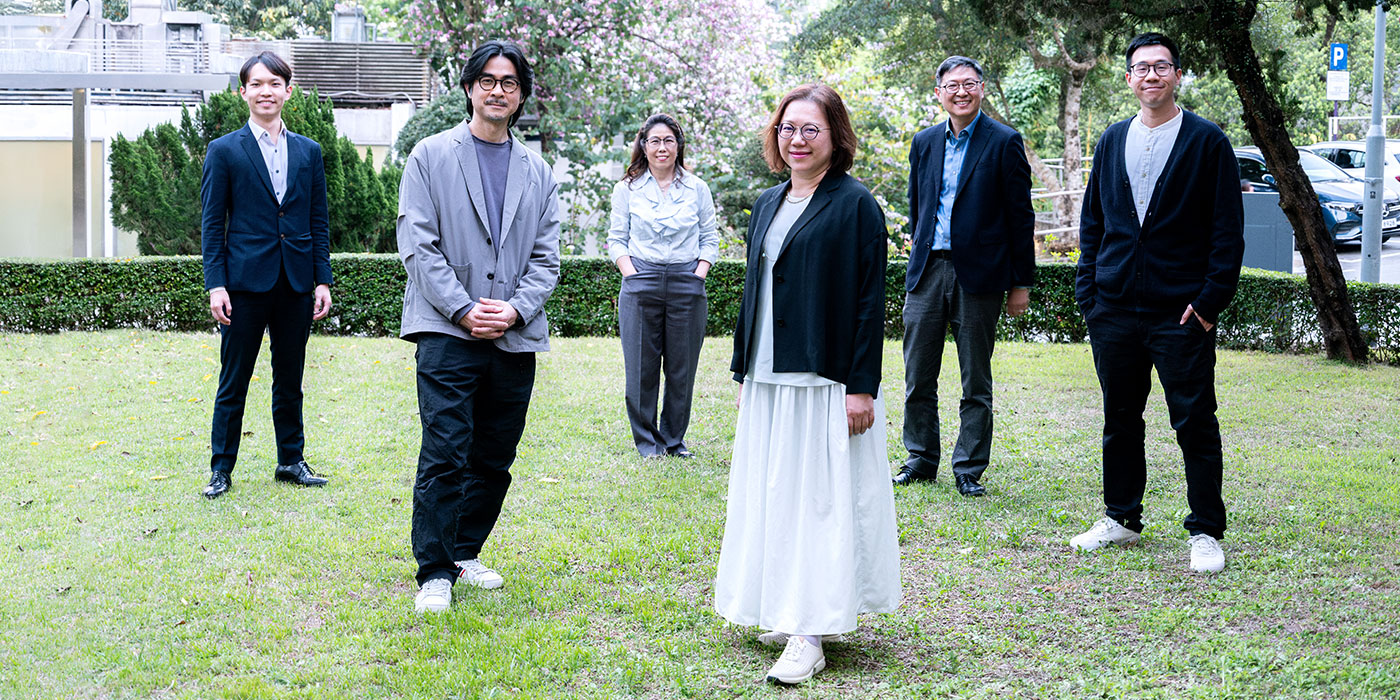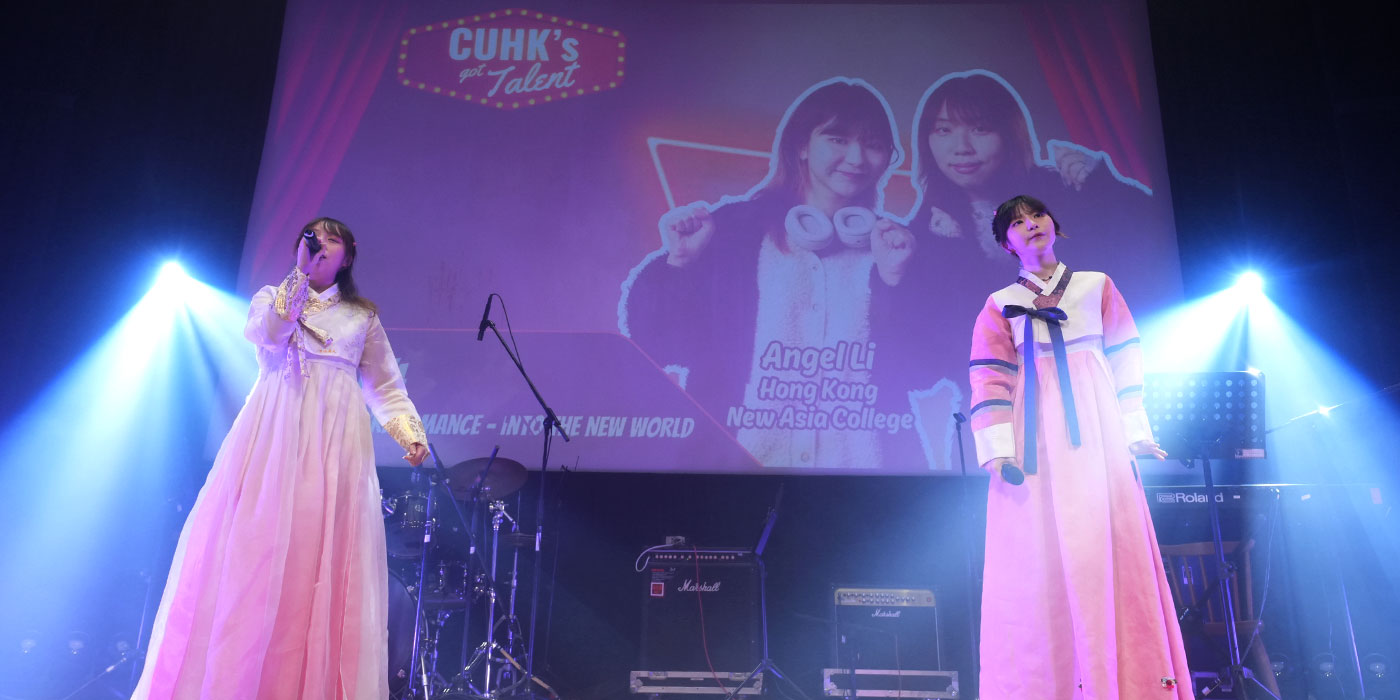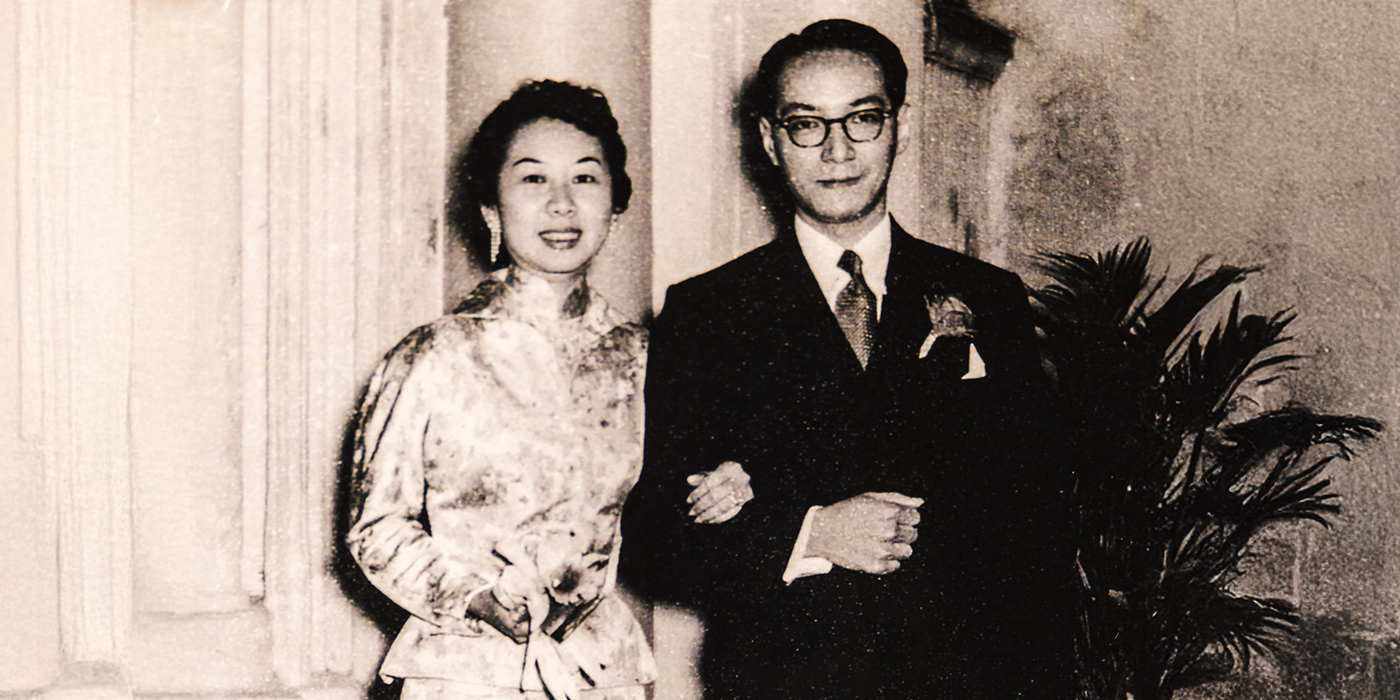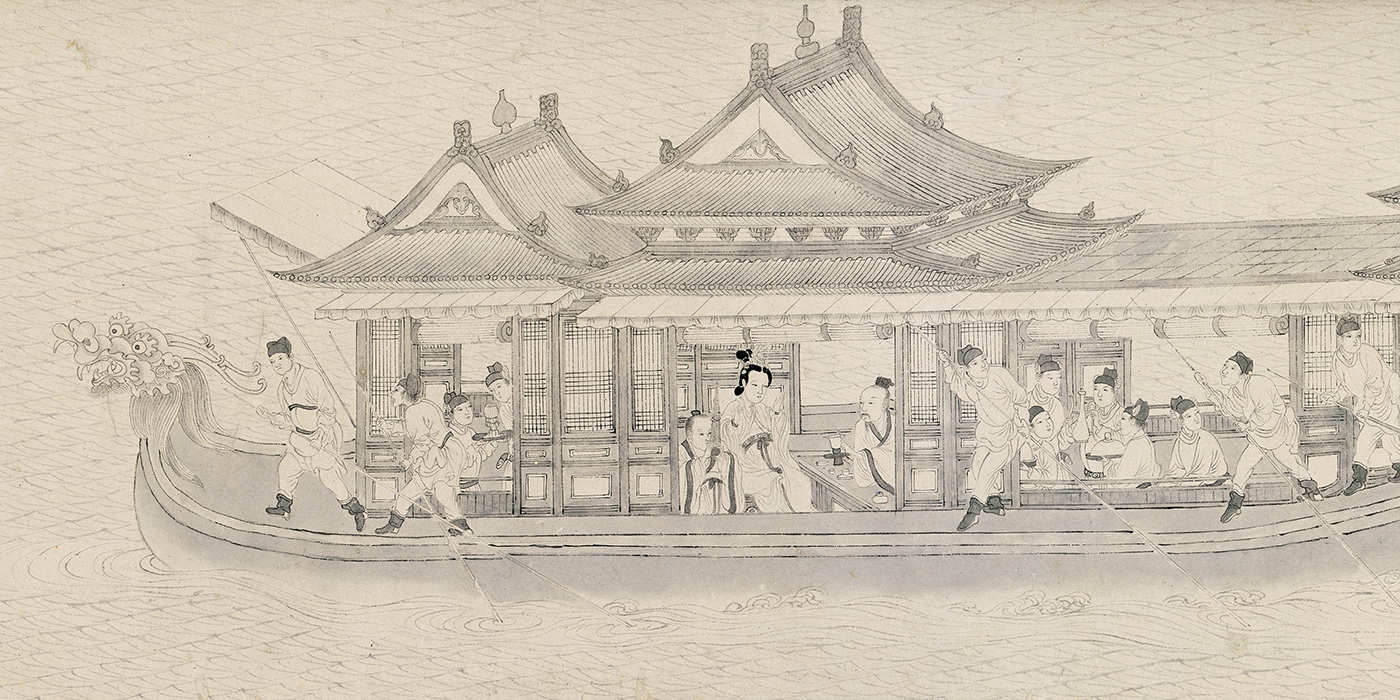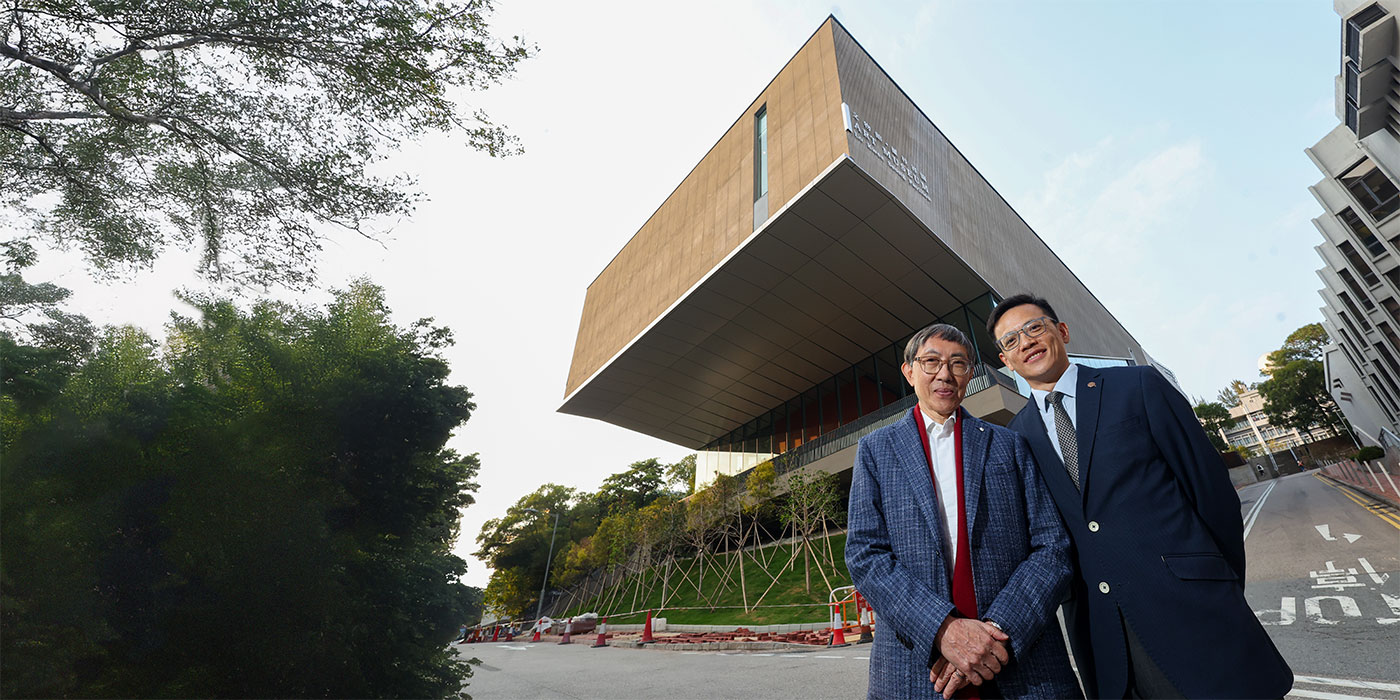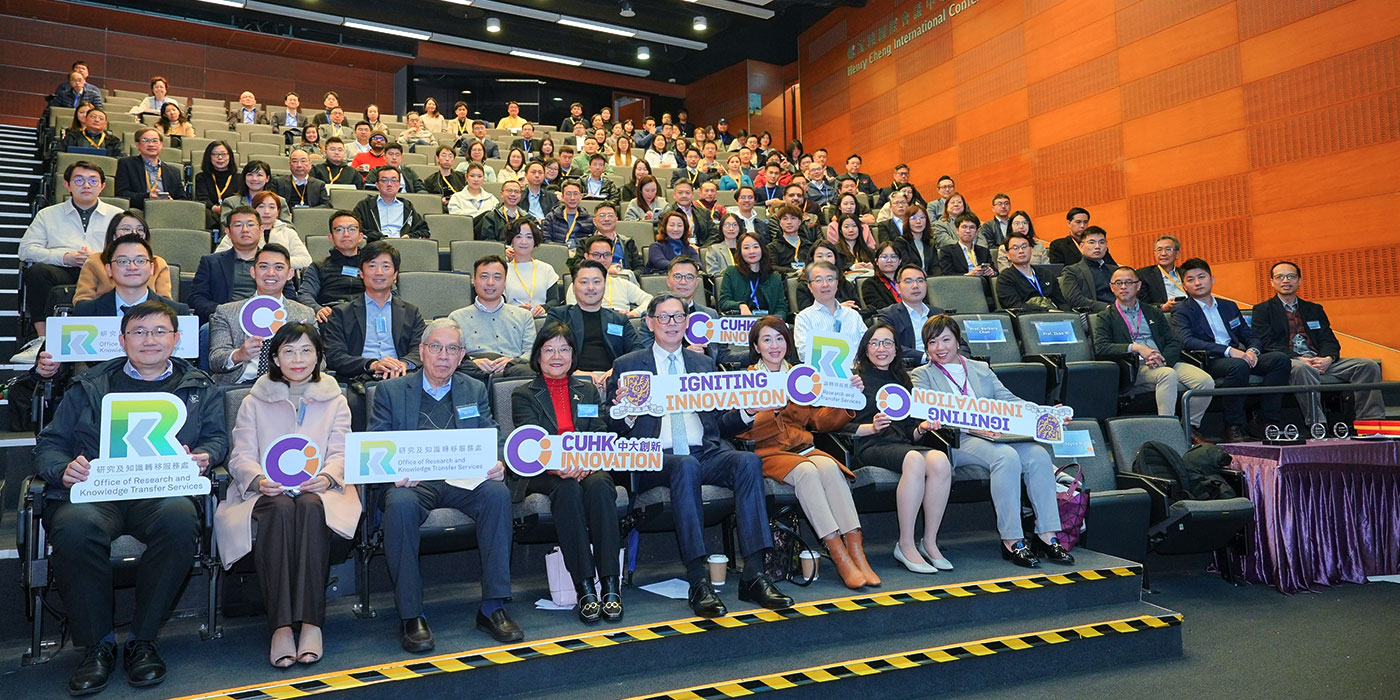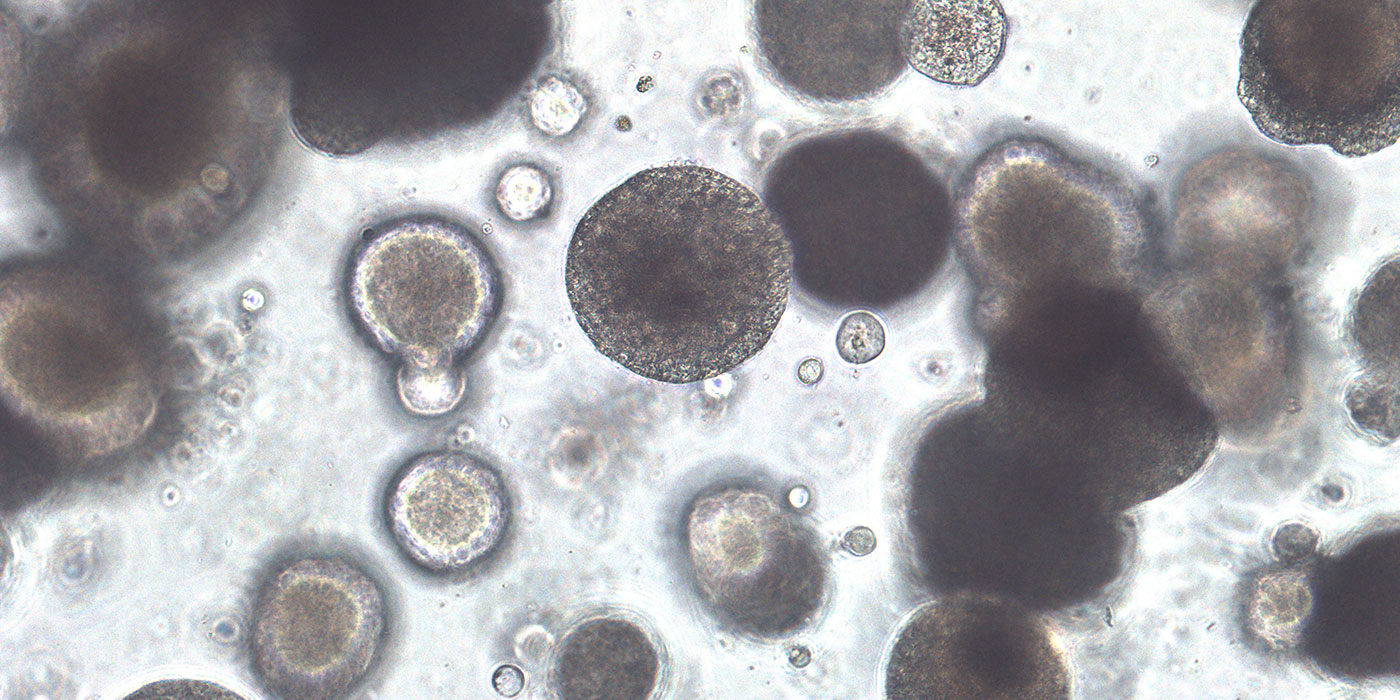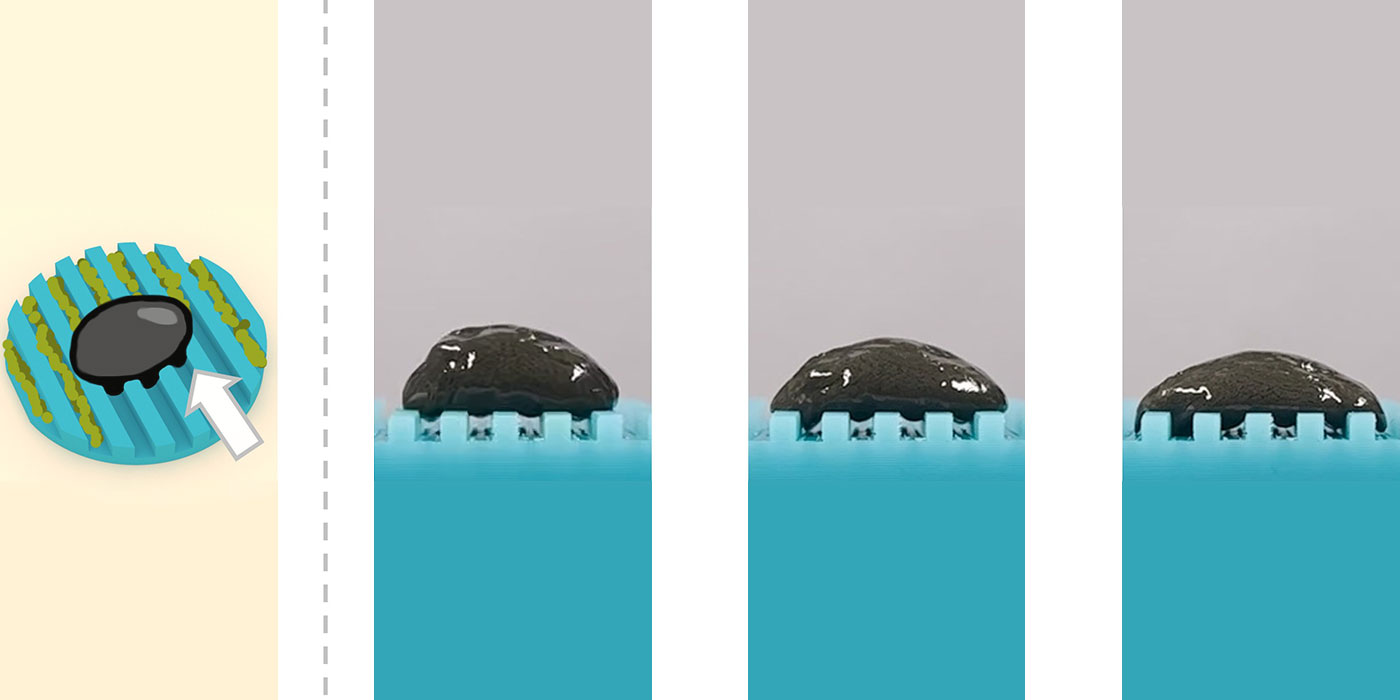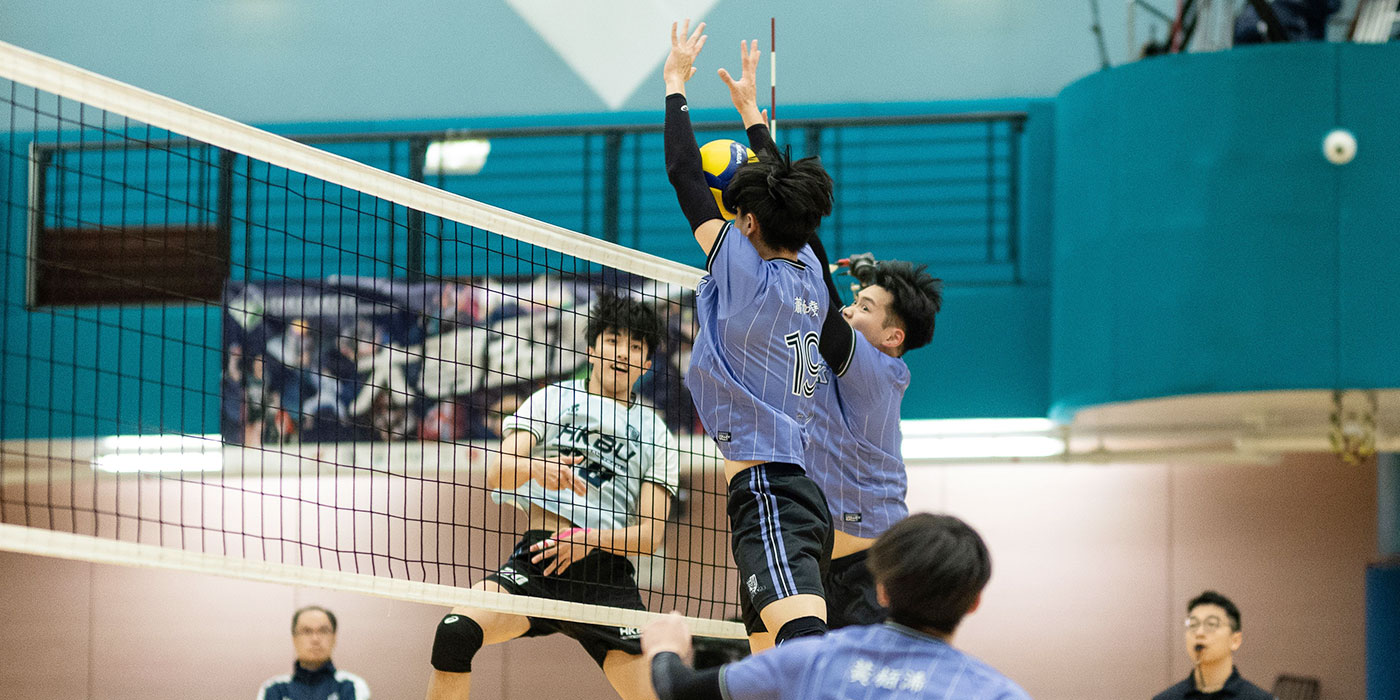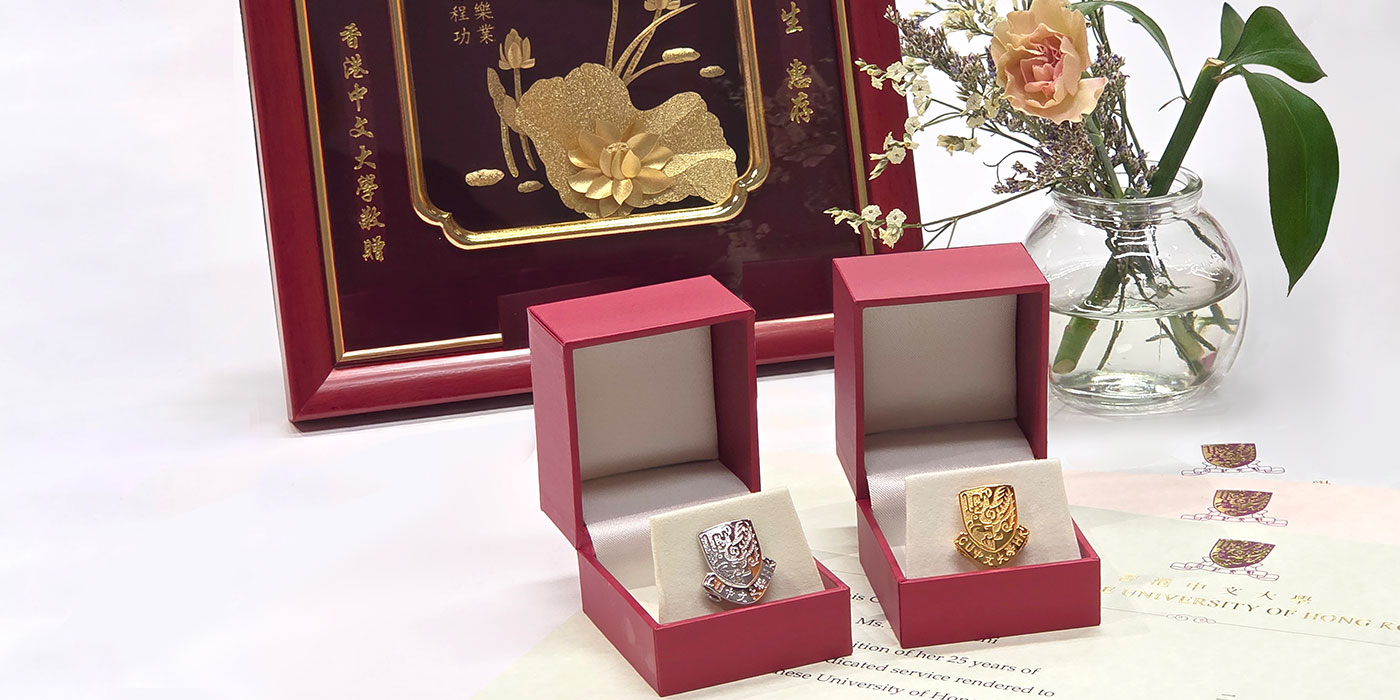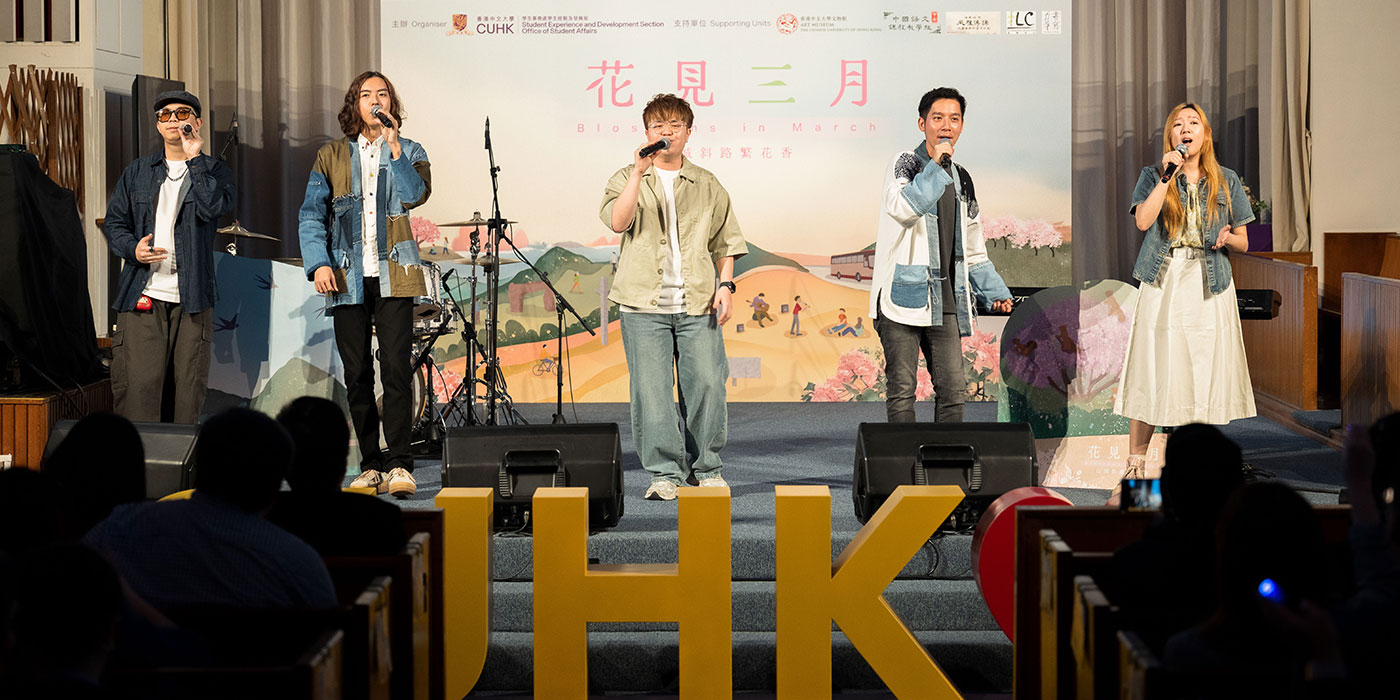Joseph Sung Jao-yiu
Still a World Cup cheerleader for CUHK
Doctor of Laws, honoris causa
On December 18, Professor Sung Jao-yiu has a date with students at Nanyang Technological University in Singapore, where he is now a Senior Vice-President: watching the World Cup final live.
The former CUHK Vice-Chancellor says he hopes to share Cup fever with students there, just as he did at CUHK in 2010 and 2014, when hundreds of students and staff gathered at the University Mall, watching live broadcasts of the games with snacks and drinks in the wee hours.
“I have booked the largest lecture hall on campus. It will be during the term break, but quite a lot of students have said they will come back for this,” Professor Sung tells CUHK in Focus. “In Singapore, I also invite students to my home for barbecue and for a chat. You know I enjoy getting along with them.” CUHK continued to plan a live broadcast of the 2018 World Cup after he stepped down, but it was cancelled due to a rainstorm. The pandemic this year has also made it impossible.
Professor Sung, who served as Vice-Chancellor and President of CUHK between 2010 and 2017, is known for his amiable interactions with students. He returned to CUHK to receive an honorary degree of Doctor of Laws at the 91st Congregation on 24 November.
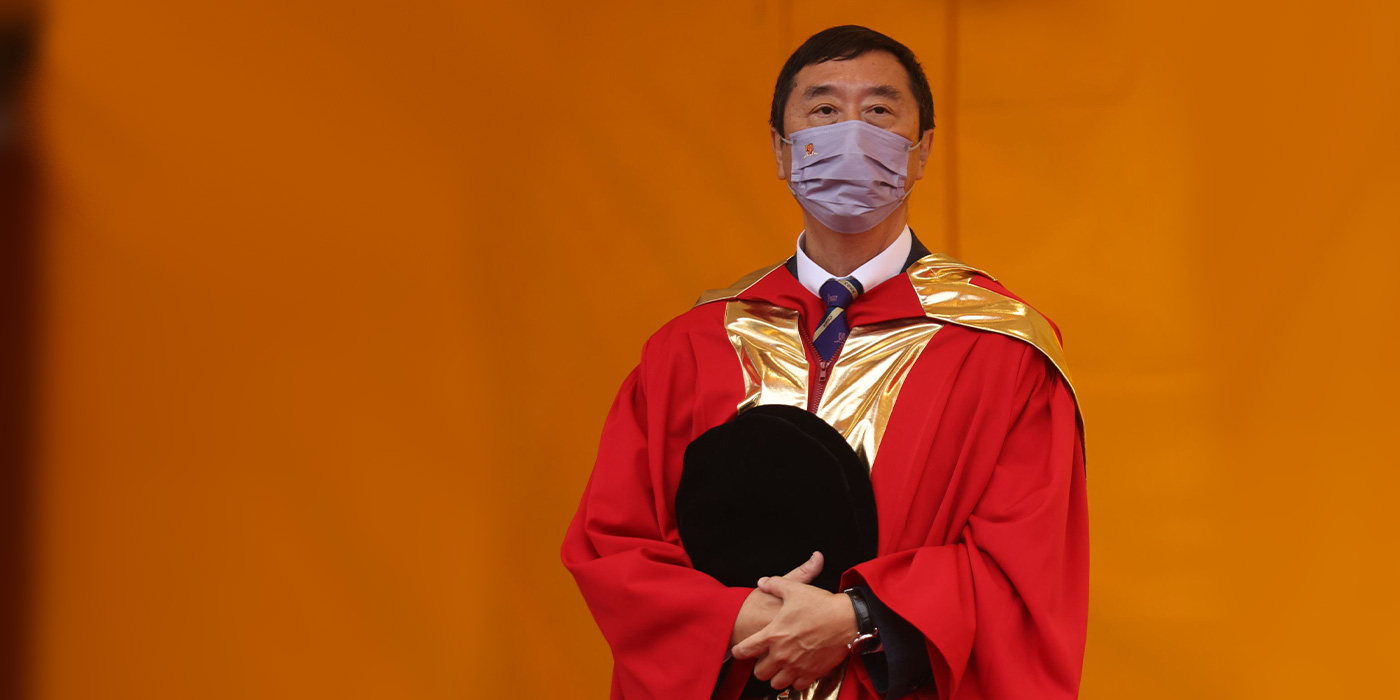
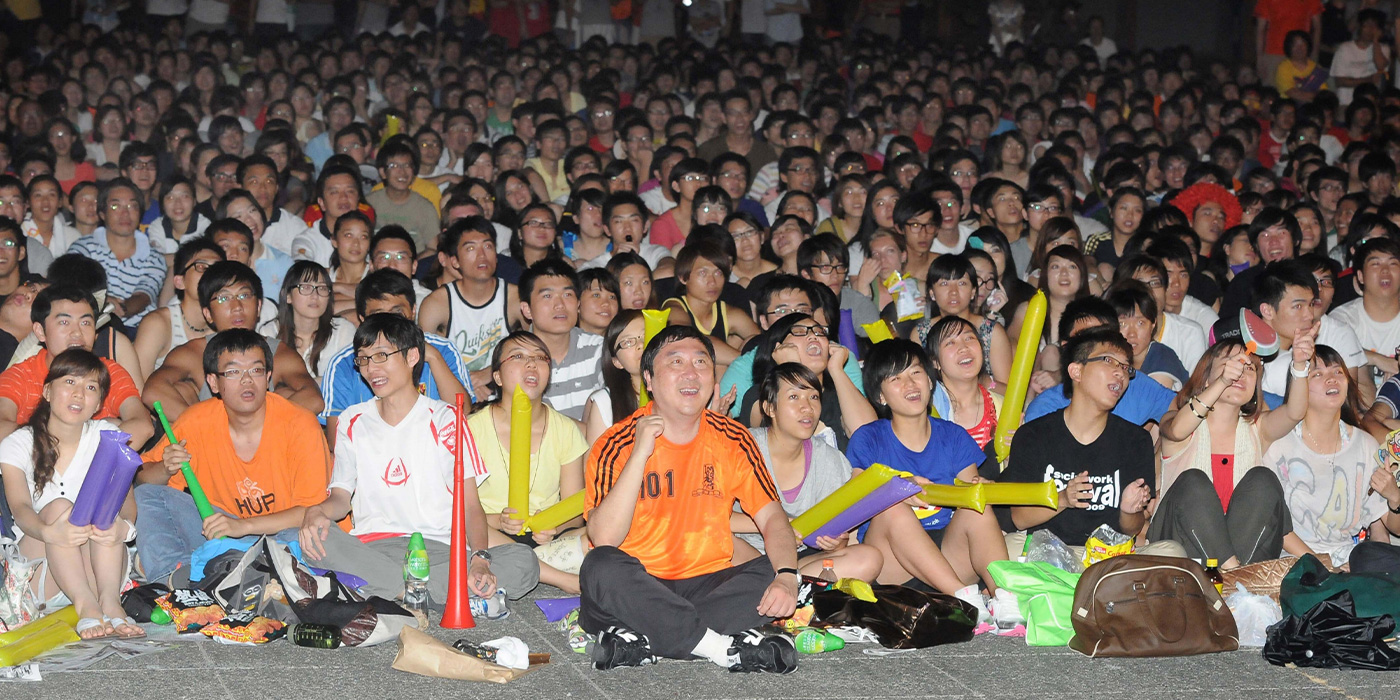
“The past few years have been a tumultuous time for Hong Kong,” he says. “But from the outside, we see CUHK keeping up its academic standards and making great achievements in scientific research all the same, such as the research in robots, DNA and microbiome by the InnoHK Centres.
“The Congregation citation says I don’t go after university rankings – I don’t actually hate that. It does reflect the progress made by the university in recent years.”
After stepping down as CUHK Vice-Chancellor and President, Professor Sung, a world-renowned scholar in gastroenterology and hepatology, remained in the Faculty of Medicine to focus on research, before joining Nanyang Technological University (NTU) in April last year. At NTU, he is Dean of Lee Kong Chian School of Medicine and Senior Vice President (Health & Life Sciences), responsible for co-ordinating all relevant research within the institution.
Professor Sung says he has become accustomed to life in the city state, finding similarities with everyday life in Hong Kong such as food and transport, even the campus. “I was amazed how the NTU and the CUHK campuses resemble each other. There is a corner at NTU that looks so much like Chung Chi College, with a lake and a pavilion.
The professor is referring to Yunnan Garden of NTU, which was built as part of the former Nanyang University. That university was built by local Chinese businessmen in 1955 to give students from Chinese-language schools opportunities for tertiary education. The Singapore government closed the institution in 1980 and rebuilt on its site Nanyang Technological Institute, which eventually became the current NTU.
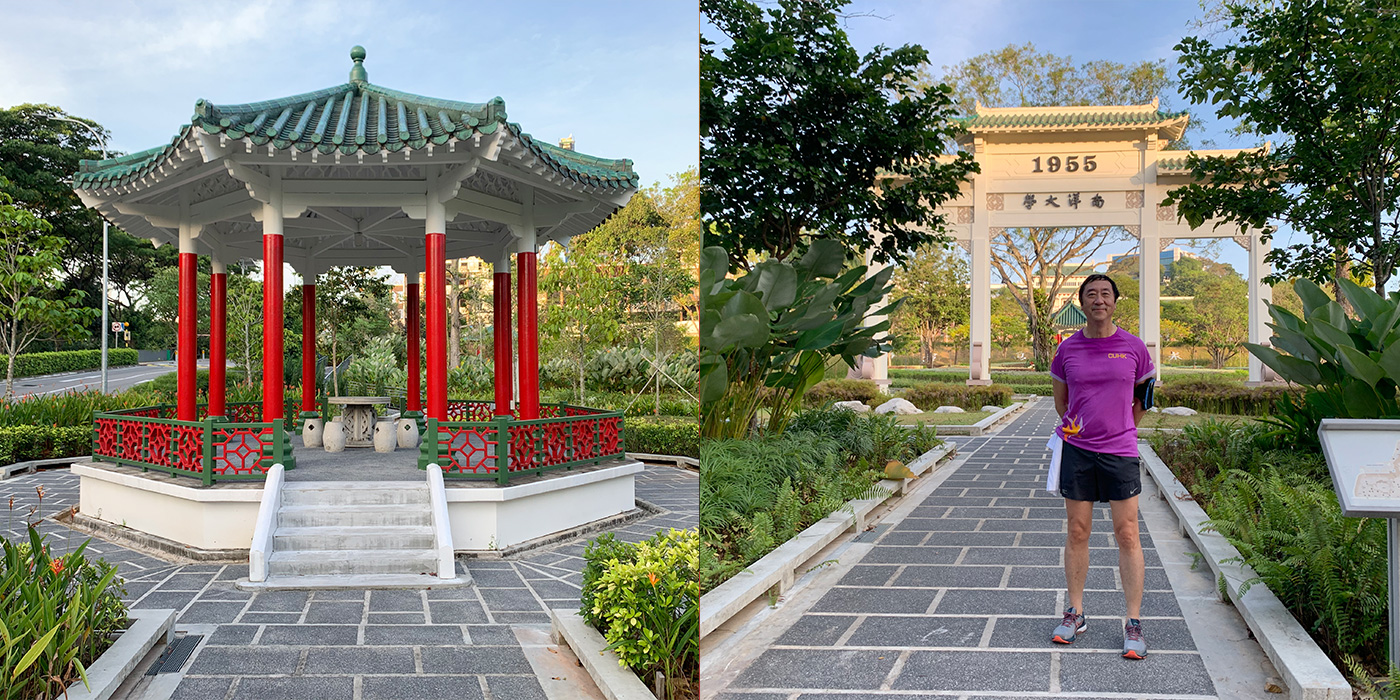
Professor Sung says that NTU’s leading role in promoting continuous education is something from which Hong Kong might learn. It launched Singapore’s first FlexiMasters two years ago, allowing people to take courses at their own pace, based on their own needs, rather than rushing to finish studies in one or two years.
“NTU works with corporates in designing the programmes, so in the process, the corporates, who are also the sponsors, have a say on what knowledge will be taught. I think this is a smart way and this kind of personalised education will be an important trend in the higher education sector worldwide,” he predicts. In addition, NTU has also co-established research laboratories with corporates including Rolls Royce, Hyundai, HP and Alibaba.
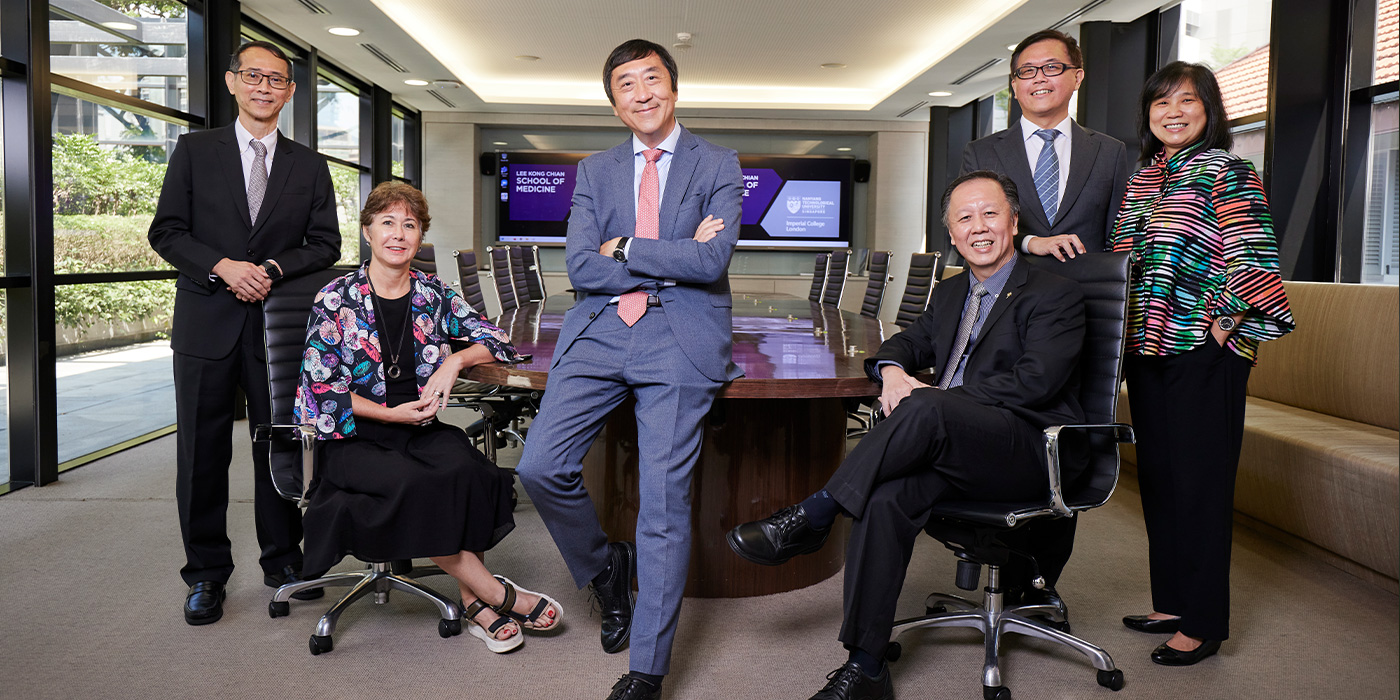

At the Congregation, the professor was recognised for his many contributions to CUHK and to medical research. On the medical front, he pioneered the use of endoscopic techniques in treating ulcer bleeding, asserting the relationship between H.pylori bacterial stomach infections and ulcer breeding and reducing the need for operative surgery. He led Asian countries to conduct large-scale colorectal cancer screening programmes and established standards for the procedure. In 2003, during the SARS outbreak in Hong Kong, Professor Sung led his team at Prince of Wales Hospital, battling the deadly disease at the frontline night and day.
During his seven-year term as President, the professor spearheaded a wide range of long-term developments at CUHK. He drove CUHK through a seamless switch from the three-year to four-year undergraduate curriculum. He started the CUHK Medical Centre project and set up the School of Life Sciences and other research institutes covering areas such as environmental science and robot technology. Under an agreement with mainland authorities, CUHK (Shenzhen) was set up in 2014, providing quality education for students across the nation.
But what made Professor Sung proudest, he told media when stepping down as President, was the introduction of the I.Care Programme in 2011. This recurring scheme, which promotes civic responsibility and global citizenship, has inspired students across CUHK to reach out to the community and participate in social service.

Back to the present, what thoughts does the professor offer young people who, like he, lived through those “tumultuous years in Hong Kong? “I hope they keep a positive mind, with positive thinking,” the professor says. “Look forward, not just backwards. The world keeps forever changing. It also moves forward.”
He draws lessons from his new environment. “Living in Singapore, what I feel most strongly about is the people’s keen crisis awareness. They are lacking in water and food and have to rely on Malaysia for supplies, but they strive to fill the gaps with innovation, whether it’s sea water desalination, or meat alternatives using plant-based meat and even insects.
“They are lacking in natural resources, but they have created a miracle in this small country. So, I feel we should have a positive mind in face of any challenges.”
By Joyce Ng
Photos by Tsang Wing-san

